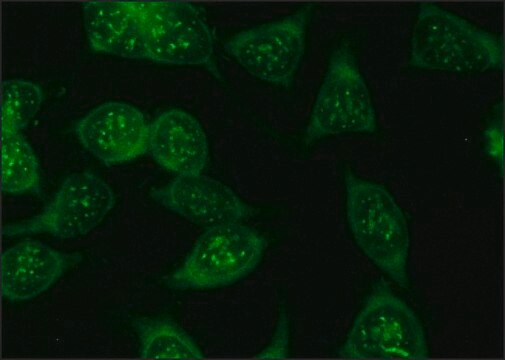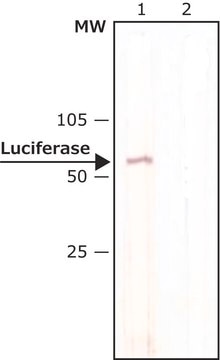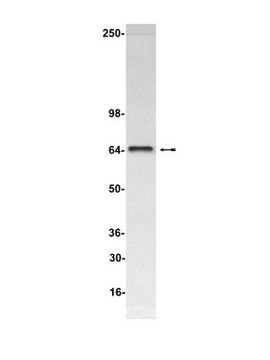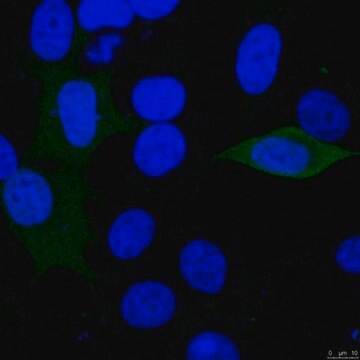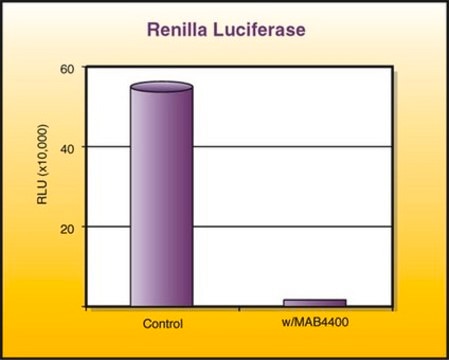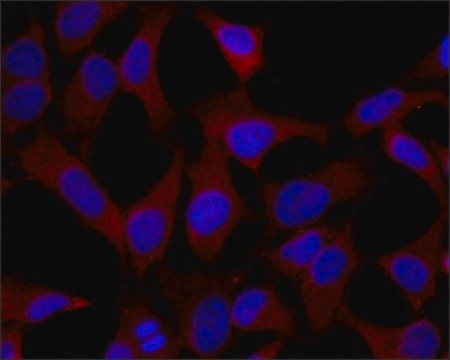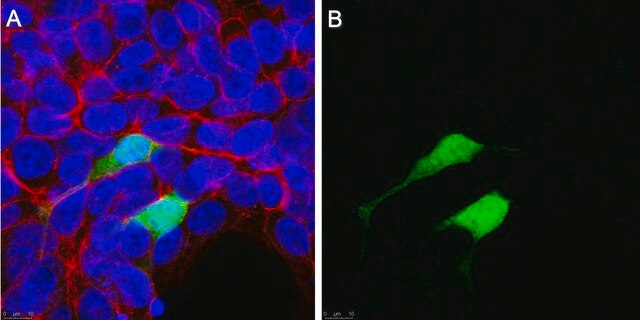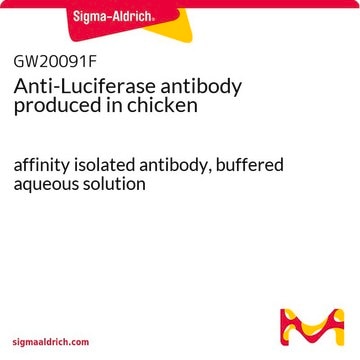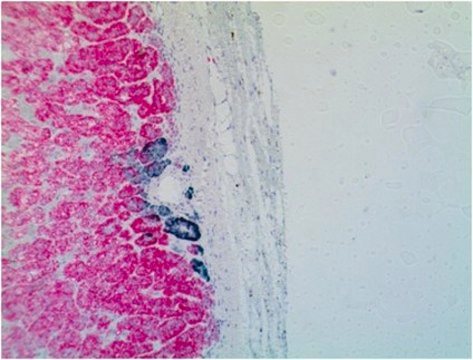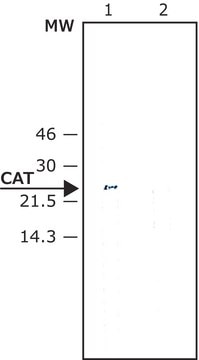Recommended Products
biological source
mouse
Quality Level
conjugate
unconjugated
antibody form
purified antibody
antibody product type
primary antibodies
clone
1D5.2, monoclonal
mol wt
calculated mol wt 36.02 kDa
packaging
antibody small pack of 100 μL
technique(s)
ELISA: suitable
immunoprecipitation (IP): suitable
western blot: suitable
isotype
IgG1
UniProt accession no.
shipped in
dry ice
storage temp.
2-8°C
target post-translational modification
unmodified
Related Categories
General description
Specificity
Immunogen
Application
Evaluated by ELISA with recombinant Renilla reniformis Luciferase.
ELISA Analysis (ELISA): Various dilution (starting at 5 μg/mL, two-fold serial dilutions; 8 points) of this antibody detected recombinant Renilla reniformis luciferase.
Tested Applications
Immunoprecipitation Analysis: A representative lot immunoprecipitated Renilla Luciferase in Immunoprecipitation applications (Adelfinger, L., et. al. (2014). Biochem Pharmacol. 91(3):369-79).
Western Blotting Analysis: A representative lot detected Renilla Luciferase in Western Blotting applications (Simms, C.L., et. al. (2019). Cell Rep. 28(7):1679-1689; Lu, Q., et. al. (2018). Nat Commun. 9(1):3104).
Note: Actual optimal working dilutions must be determined by end user as specimens, and experimental conditions may vary with the end user
Physical form
Storage and Stability
Other Notes
Disclaimer
Not finding the right product?
Try our Product Selector Tool.
wgk_germany
WGK 1
flash_point_f
Not applicable
flash_point_c
Not applicable
Certificates of Analysis (COA)
Search for Certificates of Analysis (COA) by entering the products Lot/Batch Number. Lot and Batch Numbers can be found on a product’s label following the words ‘Lot’ or ‘Batch’.
Already Own This Product?
Find documentation for the products that you have recently purchased in the Document Library.
Our team of scientists has experience in all areas of research including Life Science, Material Science, Chemical Synthesis, Chromatography, Analytical and many others.
Contact Technical Service